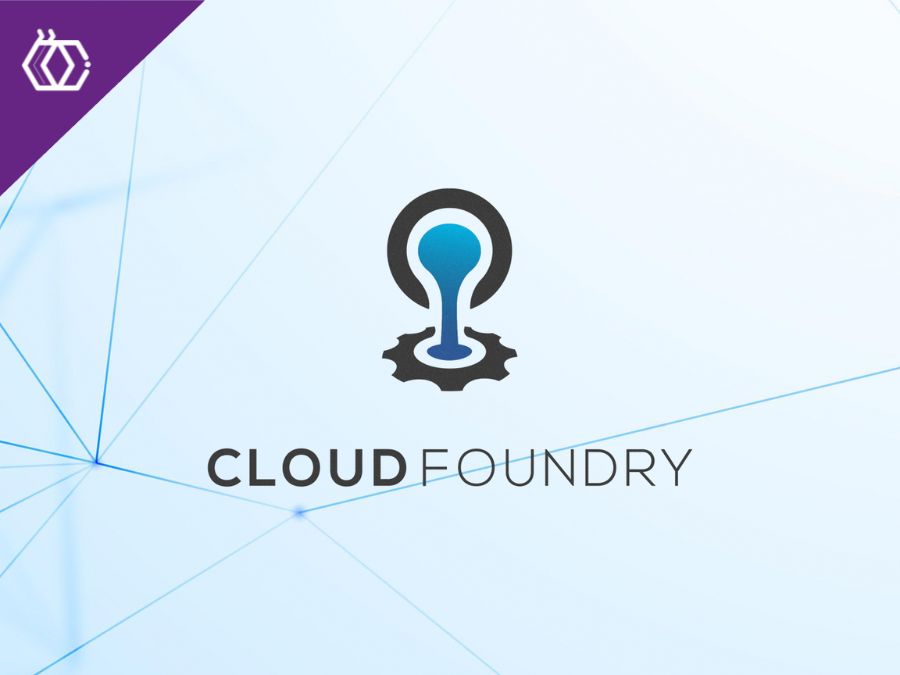

Cloud Foundry
(12 minutes of reading) Cloud Foundry (CF) is a platform as a service (PaaS) that allows developers to create, deploy, run, and scale applications easily and quickly, without the need to manage the underlying infrastructure. In this article, we will explore what is Cloud Foundry, its main features, advantages and challenges, how it works, and we will compare it to Kubernetes. Come read! WHAT IS IT CLOUD FOUNDRY? Cloud Foundry is an open-source platform that provides developers with the tools they need to build, deploy, and operate cloud-native applications. CF abstracts the complexity of infrastructure management, allowing developers to focus exclusively on application code and logic. MAIN FEATURES Multi-cloud: One of the main advantages of CF is the ability to run on multiple cloud infrastructures, be it public, private or hybrid. This means you can migrate your application from one cloud to another without having to make significant changes. Multiple support Languages: CF supports several popular languages and frameworks such as Java, Node.js, Go, PHP, Python, and Ruby. Additionally, if the desired language is not natively supported, you can use custom "buildpacks". Automation and scalability: With CF, applications can automatically scale based on demand without manual intervention. Additionally, the deployment process is automated, eliminating many of the manual tasks associated with releasing a new version. Services Marketplace: Cloud Foundry has an integrated marketplace that allows developers to access and link services such as databases, messaging systems, caching services and much more, directly to their application. Isolation and Security: Each application runs inside an isolated container, ensuring that failures in one application do not affect others. Additionally, CF has several security features, including authentication, authorization, and network encryption. HOW IT WORKS? Here's an overview of how Cloud Foundry works. Architecture: Cloud Foundry has a modular architecture that is made up of several components, such as the Cloud Controller, the Diego Cells, the UAA (User Account and Authentication) and the Router. Application Push: When you “push” an application to Cloud Foundry Using the CLI (CF push), the application is sent to the Cloud Controller. The Cloud Controller stores the application and prepares it to run. Buildpacks: Cloud Foundry detects the application type (e.g. Java, Node.js, Python) and uses an appropriate "buildpack" to create a "droplet", which is a ready-to-run image of your application. Diego: Once the droplet is created, it is delivered to Diego, which is Cloud Foundry 's container orchestration system. Diego ensures that the application runs on the specified number of instances and manages the lifecycle of these instances. Routing: The Router is responsible for routing incoming traffic to the appropriate instances of your application. This ensures that user requests reach your application. Services: Cloud Foundry also allows you to integrate with a variety of services such as databases, messaging systems and caching services. You can provide these services and link them to your applications. Security: UAA is the component that manages authentication and authorization in Cloud Foundry. It allows you to manage users, organizations, and spaces, giving you granular control over who can do what in the environment. Scaling: One of the main advantages of Cloud Foundry is the ability to scale applications in a simple way. If you need more instances of your application, simply use the Cloud Foundry CLI to increase the number of instances. Multi-cloud: Cloud Foundry is designed to be agnostic to the underlying infrastructure. This means you can run Cloud Foundry across different cloud providers or your own on-premises infrastructure. Community and Extensions: As an open-source platform, Cloud Foundry has an active community that contributes to the project. This means there are a variety of extensions and integrations available to meet the specific needs of developers and organizations. BENEFITS Focus on Code: Developers can focus on developing business logic, letting CF take care of the infrastructure. Rapid Iteration: With CF, it's quick and easy to make changes to code and see those changes reflected in a production environment. Continuous Integration and Continuous Delivery (CI/CD): CF integrates seamlessly with CI/CD tools, enabling an agile and efficient workflow. Cost Savings: By abstracting infrastructure management, developers and businesses save time and resources that would otherwise be spent on setting up and maintaining infrastructure. CHALLENGES Cloud Foundry, like many platforms and tools, presents its own set of challenges. While it offers several benefits to developers and organizations, there are also some issues that may arise when adopting it or operating it at scale. Let's address some of the most common challenges associated with Cloud Foundry. Initial Complexity: The initial learning curve for Cloud Foundry can be steep for those unfamiliar with PaaS or those coming from traditional IaaS solutions. To configure and optimize your Cloud Foundry environment may require an in-depth understanding of the platform. Cultural Shift: Organizations that are not traditionally "cloud native" may face cultural challenges when adopting Cloud Foundry. The operations and development mindset may need a revolution to get the most out of the platform. Customization: Although Cloud Foundry is extensible, customizing the platform to meet specific needs can be more challenging than simply working with an IaaS solution, where developers have complete control over the infrastructure. Updates and Maintenance: Maintaining Cloud Foundry updated can be challenging, especially in large-scale environments. With each new version, organizations may face regression or incompatibility issues. Integration with Legacy Tools: Companies with a lot of legacy systems may encounter challenges when trying to integrate these systems with applications hosted on Cloud Foundry. Performance and Optimization: Performance can be a concern, especially in multi-tenant environments where multiple applications share the same resources. This may require constant monitoring and tuning to ensure applications meet their SLAs. Security: Although Cloud Foundry If you have multiple security measures built in, configuring them correctly and ensuring that the platform and all applications are secure can be challenging, especially with the rapid evolution of security threats. Cost: Although Cloud Foundry can reduce costs over time by improving efficiency, initial migration and configuration can be expensive, especially if your organization decides to use a commercial distribution of Cloud Foundry. Portability: Although Cloud Foundry is designed to be multi-cloud, there can be challenges associated with migrating applications and data between different cloud providers or between on-premises and cloud environments. Support for Languages and Frameworks: While Cloud Foundry supports several popular languages and frameworks, there may still be some specific languages or frameworks that are not supported out-of-the-box, requiring the development of custom buildpacks. CLOUD FOUNDRY VS KUBERNETES Kubernetes is an open-source container orchestration system that allows you to manage, scale, and deploy containerized applications across clusters of machines. It gives operators more control over the infrastructure, but also requires a deeper understanding of its configuration and management. The main similarities between Cloud Foundry and Kubernetes are: 1- They run applications in containers. 2- They run applications that are packaged as Docker images. 3- They run large production workloads. 4- They can be run on premises or in the public cloud. 5- They are open source and controlled by independent foundations. Cloud Foundry's focus is on the application, while Kubernetes focus is on the container. Kubernetes also makes developers' work a little more complex, as they need to create the container for the application and define other deployment settings. While Cloud Foundry offers a different experience to the developer as it simplifies the interface. In summary, while Cloud Foundry is more focused on providing a simplified developer experience, Kubernetes is more about giving granular control over the orchestration of containers in cloud environments. Both have their own strengths depending on the organization's needs and capabilities. CONCLUSION Cloud Foundry is a powerful platform that gives programmers the tools they need to efficiently build and deploy high-quality applications. By abstracting the complexity of infrastructure management, CF allows programmers to focus on what they do best: writing code. If you haven't tried Cloud Foundry yet, it's worth taking a look and seeing how it can benefit your development projects.
Share this article on your social networks:
Rate this article:
[yasr_visitor_votes size=”medium”]



